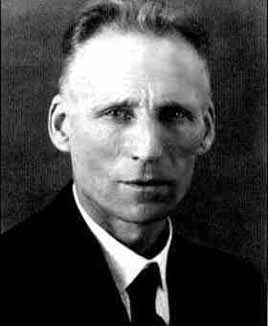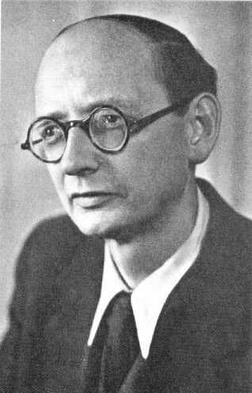In logic, the law of excluded middle states that for every proposition, either this proposition or its negation is true. It is one of the so-called three laws of thought, along with the law of noncontradiction, and the law of identity. However, no system of logic is built on just these laws, and none of these laws provides inference rules, such as modus ponens or De Morgan's laws.
Mathematical logic is the study of formal logic within mathematics. Major subareas include model theory, proof theory, set theory, and recursion theory. Research in mathematical logic commonly addresses the mathematical properties of formal systems of logic such as their expressive or deductive power. However, it can also include uses of logic to characterize correct mathematical reasoning or to establish foundations of mathematics.
In the philosophy of mathematics, constructivism asserts that it is necessary to find a specific example of a mathematical object in order to prove that an example exists. Contrastingly, in classical mathematics, one can prove the existence of a mathematical object without "finding" that object explicitly, by assuming its non-existence and then deriving a contradiction from that assumption. Such a proof by contradiction might be called non-constructive, and a constructivist might reject it. The constructive viewpoint involves a verificational interpretation of the existential quantifier, which is at odds with its classical interpretation.
In mathematical logic, Russell's paradox is a set-theoretic paradox published by the British philosopher and mathematician Bertrand Russell in 1901. Russell's paradox shows that every set theory that contains an unrestricted comprehension principle leads to contradictions. The paradox had already been discovered independently in 1899 by the German mathematician Ernst Zermelo. However, Zermelo did not publish the idea, which remained known only to David Hilbert, Edmund Husserl, and other academics at the University of Göttingen. At the end of the 1890s, Georg Cantor – considered the founder of modern set theory – had already realized that his theory would lead to a contradiction, as he told Hilbert and Richard Dedekind by letter.
Gödel's incompleteness theorems are two theorems of mathematical logic that are concerned with the limits of provability in formal axiomatic theories. These results, published by Kurt Gödel in 1931, are important both in mathematical logic and in the philosophy of mathematics. The theorems are widely, but not universally, interpreted as showing that Hilbert's program to find a complete and consistent set of axioms for all mathematics is impossible.
Finitism is a philosophy of mathematics that accepts the existence only of finite mathematical objects. It is best understood in comparison to the mainstream philosophy of mathematics where infinite mathematical objects are accepted as legitimate.
Foundations of mathematics is the study of the philosophical and logical and/or algorithmic basis of mathematics, or, in a broader sense, the mathematical investigation of what underlies the philosophical theories concerning the nature of mathematics. In this latter sense, the distinction between foundations of mathematics and philosophy of mathematics turns out to be vague. Foundations of mathematics can be conceived as the study of the basic mathematical concepts and how they form hierarchies of more complex structures and concepts, especially the fundamentally important structures that form the language of mathematics also called metamathematical concepts, with an eye to the philosophical aspects and the unity of mathematics. The search for foundations of mathematics is a central question of the philosophy of mathematics; the abstract nature of mathematical objects presents special philosophical challenges.

Luitzen Egbertus Jan "Bertus" Brouwer was a Dutch mathematician and philosopher who worked in topology, set theory, measure theory and complex analysis. Regarded as one of the greatest mathematicians of the 20th century, he is known as the founder of modern topology, particularly for establishing his fixed-point theorem and the topological invariance of dimension.

Metamathematics is the study of mathematics itself using mathematical methods. This study produces metatheories, which are mathematical theories about other mathematical theories. Emphasis on metamathematics owes itself to David Hilbert's attempt to secure the foundations of mathematics in the early part of the 20th century. Metamathematics provides "a rigorous mathematical technique for investigating a great variety of foundation problems for mathematics and logic". An important feature of metamathematics is its emphasis on differentiating between reasoning from inside a system and from outside a system. An informal illustration of this is categorizing the proposition "2+2=4" as belonging to mathematics while categorizing the proposition "'2+2=4' is valid" as belonging to metamathematics.
In the philosophy of mathematics, logicism is a programme comprising one or more of the theses that – for some coherent meaning of 'logic' – mathematics is an extension of logic, some or all of mathematics is reducible to logic, or some or all of mathematics may be modelled in logic. Bertrand Russell and Alfred North Whitehead championed this programme, initiated by Gottlob Frege and subsequently developed by Richard Dedekind and Giuseppe Peano.
In the philosophy of mathematics, the pre-intuitionists were a small but influential group who informally shared similar philosophies on the nature of mathematics. The term itself was used by L. E. J. Brouwer, who in his 1951 lectures at Cambridge described the differences between intuitionism and its predecessors:
Of a totally different orientation [from the "Old Formalist School" of Dedekind, Cantor, Peano, Zermelo, and Couturat, etc.] was the Pre-Intuitionist School, mainly led by Poincaré, Borel and Lebesgue. These thinkers seem to have maintained a modified observational standpoint for the introduction of natural numbers, for the principle of complete induction [...] For these, even for such theorems as were deduced by means of classical logic, they postulated an existence and exactness independent of language and logic and regarded its non-contradictority as certain, even without logical proof. For the continuum, however, they seem not to have sought an origin strictly extraneous to language and logic.

Oscar Becker was a German philosopher, logician, mathematician, and historian of mathematics.
In mathematics, logic and philosophy of mathematics, something that is impredicative is a self-referencing definition. Roughly speaking, a definition is impredicative if it invokes the set being defined, or another set that contains the thing being defined. There is no generally accepted precise definition of what it means to be predicative or impredicative. Authors have given different but related definitions.
The axiom of reducibility was introduced by Bertrand Russell in the early 20th century as part of his ramified theory of types. Russell devised and introduced the axiom in an attempt to manage the contradictions he had discovered in his analysis of set theory.
In mathematical logic, realizability is a collection of methods in proof theory used to study constructive proofs and extract additional information from them. Formulas from a formal theory are "realized" by objects, known as "realizers", in a way that knowledge of the realizer gives knowledge about the truth of the formula. There are many variations of realizability; exactly which class of formulas is studied and which objects are realizers differ from one variation to another.
In proof theory, a discipline within mathematical logic, double-negation translation, sometimes called negative translation, is a general approach for embedding classical logic into intuitionistic logic. Typically it is done by translating formulas to formulas that are classically equivalent but intuitionistically inequivalent. Particular instances of double-negation translations include Glivenko's translation for propositional logic, and the Gödel–Gentzen translation and Kuroda's translation for first-order logic.
In the philosophy of mathematics, formalism is the view that holds that statements of mathematics and logic can be considered to be statements about the consequences of the manipulation of strings using established manipulation rules. A central idea of formalism "is that mathematics is not a body of propositions representing an abstract sector of reality, but is much more akin to a game, bringing with it no more commitment to an ontology of objects or properties than ludo or chess." According to formalism, the truths expressed in logic and mathematics are not about numbers, sets, or triangles or any other coextensive subject matter — in fact, they aren't "about" anything at all. Rather, mathematical statements are syntactic forms whose shapes and locations have no meaning unless they are given an interpretation. In contrast to mathematical realism, logicism, or intuitionism, formalism's contours are less defined due to broad approaches that can be categorized as formalist.

In a controversy over the foundations of mathematics, in twentieth-century mathematics, L. E. J. Brouwer, a proponent of the constructivist school of intuitionism, opposed David Hilbert, a proponent of formalism. The debate concerned fundamental questions about the consistency of axioms and the role of semantics and syntax in mathematics. Much of the controversy took place while both were involved with Mathematische Annalen, the leading mathematical journal of the time, with Hilbert as editor-in-chief and Brouwer as a member of its editorial board. In 1920, Hilbert succeeded in having Brouwer, whom he considered a threat to mathematics, removed from the editorial board of Mathematische Annalen.
A timeline of mathematical logic; see also history of logic.



